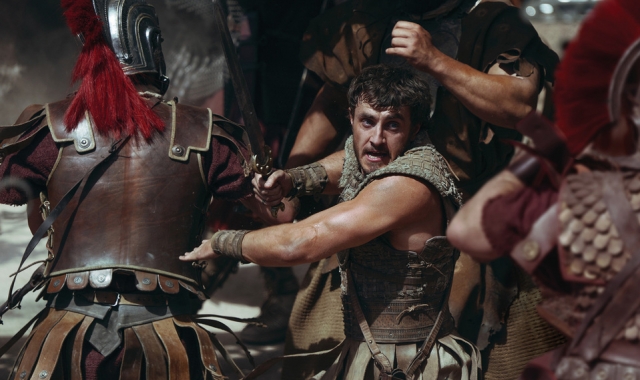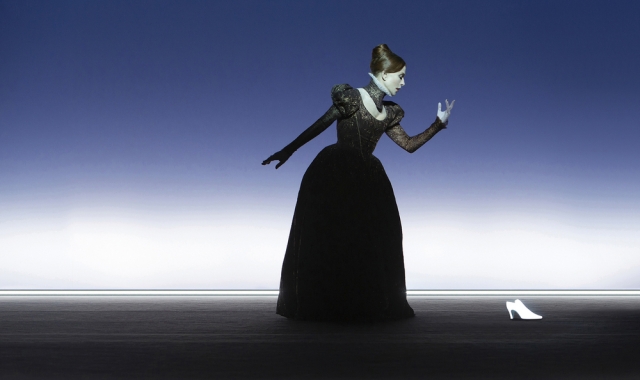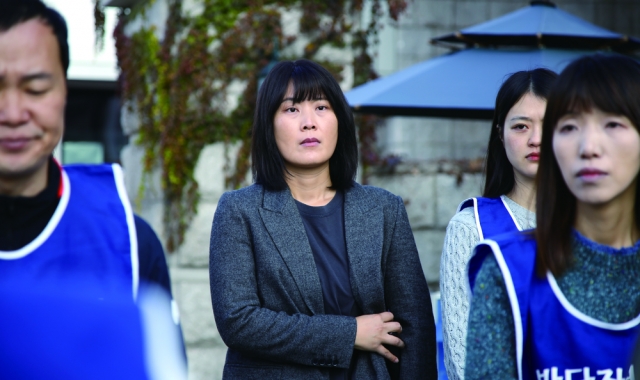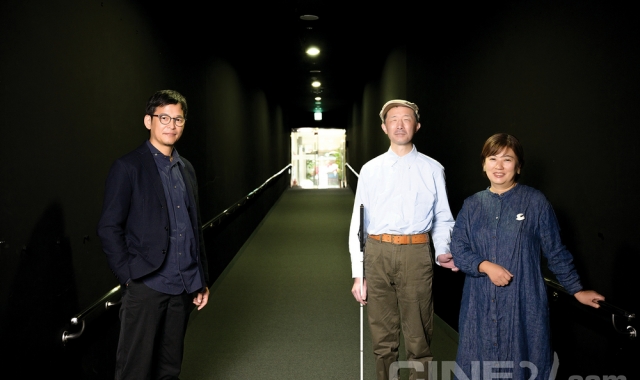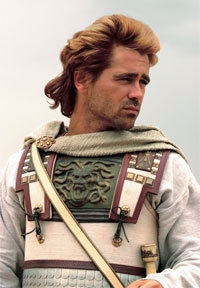
영화사엔 가끔, 하나의 연기 속에 배우와 역할과 영화가 너무나도 강렬하고 조화롭게 어우러져 나머지 연기자의 커리어 전체를 특징짓게 되는 경우가 있다. 가장 최근의 예로는 <알렉산더>에서의 콜린 파렐의 연기가 있다. 2300년 전 얼마 동안 그리스 제국을 만들어나갔다가 32살에 죽은 젊은 마케도니아 왕을 맡은 콜린 파렐의 연기는 <아라비아의 로렌스>에서의 피터 오툴과 같은 대열에 선다. 이런 연기는 자주 나타나진 않지만, 나타날 땐 틀림없는 느낌이 난다. 배우가 역할을 채우는 정도가 아니라 스크린에서의 페르소나를 지나치고 넘어서서 그 인물 자체가 돼버리는 것이다. 가장 중요한 것은 다른 사람을 그 역할에 놓고 상상할 수 없게 된다는 것이다.
서사영화는 이런 일이 벌어지기에 완벽한 무대를 제공한다. 예를 들어 <아라비아의 로렌스>에서의 오툴, <벤허>에서의 찰턴 헤스턴, <클레오파트라>에서의 엘리자베스 테일러 등이 있다. 오툴이 그전에 영화 속 작은 역할들을 맡기도 했고 헤스턴과 테일러는 큰 역들을 맡기도 했지만, 이 셋의 커리어는 이 역할들로 각각 지울 수 없는 특색을 가지게 됐다.
그렇지만 오툴이나 헤스턴, 테일러는 데이비드 린, 윌리엄 와일러나 조셉 맨케비츠 감독의 연출 없이는 아무것도 되지 못했을 것이다. 마찬가지로 파렐 역시 올리버 스톤의 도움 없이는 이런 연기의 정상에 오르지 못했을 것이다. 최근 역사 서사영화의 부흥(<글래디에이터> <패션 오브 크라이스트> <트로이> 등) 중에서 스톤이 지금껏 최고의 것을 창조했다. 스펙터클이 인간드라마를 매몰시키는 것이 아니라 향상시키는 영화다. 알렉산더의 이야기는- 오늘날의 터키, 이집트, 이스라엘, 요르단, 시리아, 레바논, 이라크, 이란, 아프가니스탄, 우즈베키스탄, 파키스탄, 그리고 서북부 인도를 통하는 1만1천 마일에 걸친 12년간의 원정으로- 지금까지 영화화의 시도를 무색하게 했던 것이다. 리처드 버튼 주연의 1956년작 <알렉산더 대왕>은 극적인 사산아였다. 인물의 심리에 집중함으로써(이종민족들을 통일시키는 꿈을 꾼 개인적으로 강박을 가진 남자, <아라비아의 로렌스>와 같이), 그리고 원정의 과정을 그의 정신적 분열에 대응하게 함으로써 스톤 감독은 이 대상을 영화화하는 문제를 해결했다.
표면상으로 보면 파렐은 누구나 다 인정할 만한 캐스팅 초이스는 아니었다. 다갈색 머리에 노동계급 출신의 젊은 아일랜드인으로, 이전에 칭찬할 만한 연기도 했지만 주연급 역할은 (<폰 부스>) 하나뿐이었다. 이런 사람이 그리스의 신화적인 영웅들의 대를 이었다고 스스로 믿었던, 금발의 왕이 된 왕자를 중심으로 한 거대한 역사서사극을 이끌어나갈 만한 인물로는 보이지 않았다.
그런데 염색 머리와 마케도니아식 의상에 심히 불안한 눈빛으로, 파렐은 자기가 알렉산더라고 설득하는 정도가 아니라 그의 고대 초상화를 닮기까지 했다(진짜 아라비아의 로렌스와는 전혀 닮지 않았던 오툴보다 하나 나은 것이다). 게다가 스톤 감독의 절묘한 처리로 모든 “거친” 북부의 마케도니아인들이 아일랜드나 스코틀랜드 발음으로 말하고 더 세련된 남부의 그리스인들이 영국식 발음으로 말하니까 파렐은 자신의 고유한 더블린 발음을 쓸 수 있는 진귀한 기회를 누렸고, 그 효과가 강력했다(이 고안은 <벤허>와 같은 1950년대 할리우드 서사영화에서 처음 사용됐던 것으로, 당시엔 로마인과 유대인/기독교인들이 각각 영국인과 미국인 배우들로 나누어 연기했다).
물론, 커리어를 특징짓는 연기는 흥행성공으로 연결돼야 하는데, 지금까지 미국에선 요즘 기준으로 실망스런 성적을 거두고 있다. 그렇지만 <알렉산더>는 미국 멀티플렉스 관객을 위한 두뇌없는 액션-스펙터클은 아니고, 국제적으로 훨씬 잘될 가능성이 있다. 확실한 것은, 28살의 이 배우가 더 큰 무대에 서거나 이 정도로 그의 강렬하고 천하태평한 공적 페르소나에 맞는 역할을 다시 얻게 될 가망성이 낮다는 것이다.
Every once in a while in the cinema there comes a performance in which actor, role and film blend so powerfully and harmoniously that it defines a whole career. The latest example is Colin Farrell's in "Alexander." Farrell's performance as the young Macedonian king who briefly forged a Greek empire 2,300 years ago before dying at the age of 32 stands alongside other performances like Peter O'Toole's in "Lawrence of Arabia." Such performances don't come along too often but there's an unmistakeable feeling when they do. The actor not only fills the role but BECOMES the role above and beyond his screen persona. Most importantly, it becomes impossible to imagine anyone else in the part.
Epic films provide a perfect stage for this to take place: O'Toole in "Lawrence," Charlton Heston in "Ben-Hur," Elizabeth Taylor in "Cleopatra." Though O'Toole had had some small screen parts beforehand, and Heston and Taylor some major ones, the careers of all three from then on were indelibly marked by these roles.
But just as O'Toole, Heston and Taylor would have been nothing without the guiding hand of directors David Lean, William Wyler and Joseph L. Mankiewicz, so Farrell would never have scaled these acting heights without the help of Oliver Stone.
In the current revival of historical epics ("Gladiator," "The Passion of Christ," "Troy" etc.), Stone has created the greatest so far - a film in which spectacle enhances the human drama rather than overwhelms it. Alexander's story - an 11,000-mile, 12-year expedition through modern-day Turkey, Egypt, Israel, Jordan, Syria, Lebanon, Iraq, Iran, Afghanistan, Uzbekistan, Pakistan and northwest India - has so far defied filmmakers: the 1956 movie, "Alexander the Great," starring Richard Burton, was dramatically stillborn. By concentrating on the psychology of the character (like Lawrence of Arabia, a privately driven man who dreamed of uniting disparate peoples), and making the journey parallel his mental disintegration, Stone has cracked the problem of filming the subject.
On the face of it, Farrell was not an obvious choice: a dark-haired, working-class young Irishman with some creditable performances behind him but only one leading role (in "Phone Box"), he hardly seemed the stuff to carry a huge $160 million historical epic centred on a golden-haired prince-turned-king who believed he was in the line of Greece's mythological heroes.
But with dyed hair, Macedonian garb and deeply troubled eyes, Farrell not only convinces you he's Alexander, he even looks like ancient portraits of the man. (That's one up on O'Toole, who didn't look anything like the real Lawrence of Arabia.) And in Stone's masterstroke of having all the "rough," northern Macedonians speak with Irish or Scottish accents, while the more cultured, southern Greeks have English accents, Farrell gets a rare chance to use his natural Dublin accent, to powerful effect. (This device was first used in Hollywood epics of the 1950s, like "Ben-Hur," in which Romans and Jews/Christians were separately played by British and American actors.)
Of course, a career-defining performance needs to be linked to a box-office success and so far in the U.S. the movie has performed disappointingly in modern terms. But "Alexander" is not brainless action-spectacle for American multiplex audiences, and is likely to do much better internationally. Certainly, the 28-year-old actor is unlikely to get a bigger stage - nor a role so fitted to his intense, devil-may-care public persona - again in his career.

